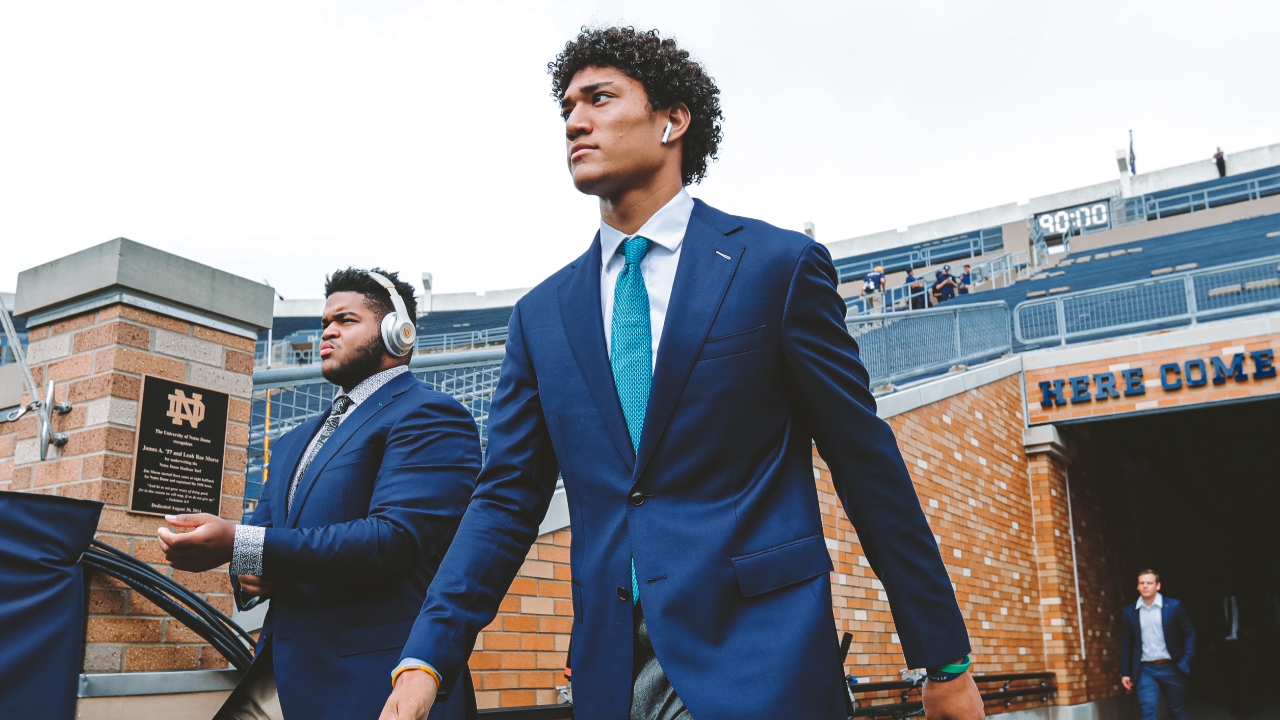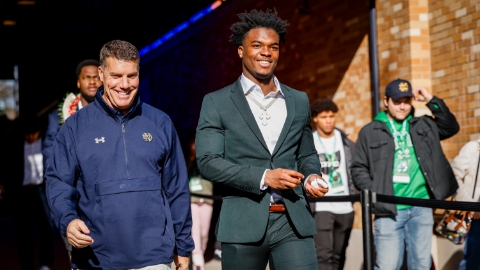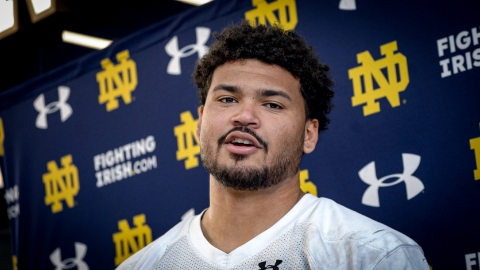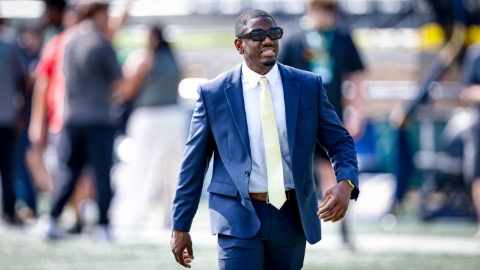
Name, Image and Likeness has dominated the sports world over the last week as collegiate athletes can now legally make money.
It's something that was going to happen eventually and as of July 1st, it's here.
ISD caught up with Notre Dame alum, Ge Wang, who owns ESQ Clothing, a bespoke suit company based in Chicago.
Wang has worked with countless celebrities and professional athletes throughout the years and has developed extensive experience in endorsements and creative ways to market ESQ.
The former lawyer also tapped into college athletics as ESQ does custom jackets for Notre Dame, Northwestern and Vanderbilt, which the players can be seen wearing on game days.
Wang hasn't jumped completely head-first into NIL as it doesn't necessarily pertain to his business and he feels most companies feel the same.
"It's not going to apply to 90 percent of businesses just like endorsing any other athlete wouldn't really apply," said Wang."
That doesn't mean college athletes aren't going to find ways to profit off their name, image and likeness. They need to be open to new businesses and a lower pay structure than they likely expect.
"Where it's really going to benefit these kids is from newer startup brands run by people who have a significant online presence," explained Wang. "It might be selling cheap merchandise - t-shirts, energy drinks - random startups.
"Those brands are going to go after these kids."
Wang also believes there will be a couple of tiers when it comes to earnings.
Fresno State hoopers Haley and Hanna Cavinder are twins that signed with Six Star Pro Nutrition and Boost Mobile on July 1st.
The twins have around 4 million followers combined on Instagram and TikTok, so the opportunity is going to be much greater than say, Fresno State's second-string right guard.
"You have to look at non-revenue sports," stated Wang. "There are track and field athletes - the Fresno State girls have made a lot of money with this NIL thing.
"They can build their online influencer brand and they're able to capitalize on it."
But it's not going to be all five or six-figure deals for every college athlete. In fact, the large majority of college athletes aren't going to be marketable on a national scale.
"You might have a Michael Phelps every now and then, but there's maybe 20-30 marketable people in the entire NCAA on a national level,” Wang explained. "Notre Dame does have an advantage there because there is a national presence. But when it comes to football players, the quarterback is 80 percent of the marketable value. Then the rest of it is going to be receivers, a tight end and maybe a rare defender."
If you look at college football in 2020, Clemson's Trevor Lawrence would have stolen the show and set the bar, but Wang feels the quarterback might have been an outlier for the sport.
"Trevor would have done great with this," Wang stated. "If you look back at it, Tim Tebow would have benefited greatly or even Vince Young to a certain degree. But there's maybe 30 guys in college football and that's probably stretching it."
Does a large Social Media presence truly matter? Sure, it helps, but it also comes down to the target audience of the business and the individual.
100,000 followers is nice, yet it might not make sense for companies to use a college athlete for marketing when most followers are 12-22 in age as some have driven home as character, personality and target audience matter.
"It depends on branding," Wang explained. "These guys might get free Nike shoes or something, but this is where I go back to the 90 percent of businesses having an entrenched brand already. Clients aren't really going to care what a 20-year old kid is doing.
"The brand has to be geared towards high school and college-aged kids, but there's not a huge market there because those kids don't have a lot of money to spend."
YOKE Gaming has found success as over 10,000 college athletes signed up for the video game platform in the first 18 hours of the NIL era.
The app allows athletes to essentially FaceTime fans while playing video games online. There's your target audience.
Cameo is another company that makes a ton of sense for college athletes to partner with as the app allows fans to pay for the athletes to send a personalized video message.
"The Cameo thing is a bit unique," Wang said. "You're going to have alumni, fans, or diehards who want a 'Happy Birthday' from a 20-year-old. Cameo is great for that and a direct way to monetize."
Notre Dame safety Kyle Hamilton is on the Cameo platform and charges $49 for pep talks, shoutouts, or personal messages.
On the flipside, Oklahoma quarterback Spencer Rattler is charging $125.
Hamilton likely is in the sweet spot long term as more fans will pay for his video messages as it's affordable for his target audience as kids can probably talk their parents into $50 instead of $125.
However, Hamilton is one of the few players on the Notre Dame roster where it makes sense to partner with Cameo, according to Wang.
"Kyle is kind of unique," Wang said. "He's kind of the face of the program this year and if you look at the Notre Dame roster this year, you have Kyle and really maybe only Michael Mayer. Who else are alumni or fans going to say I wish I got a birthday shoutout from this guy?
"It's going to be rare, but Cameo is great because it's going to get them some extra beer money."
Wang does have some easy advice for college athletes to help improve their brand.
"If they weren't already aware of it, you have to start building your brand early," stated Wang. "You might have 100 good tweets and 100 things that are done great, but something that's highly controversial or something that doesn't fit a brand agenda is going to sink you really quick.
"Kids need to go back and clean up their Social Media right away because they've had it since middle school."
Overall, Wang feels the new NIL rules are good for college athletes and while they might not be making millions, there are opportunities available that weren't legal before July 1st.
"I think where this could benefit local kids is like what you see with the offensive line and Mission BBQ doing something together," said Wang. "It's going to be something where the kids post about it and they're going to get some free food. That's great, but they're not going to make too much money from it.
"I think once we have maybe a year or two of data, that's going to change. I also think brands that are jumping all in at this opportunity right now are going to look at this in a year and severely regret what they're doing."


